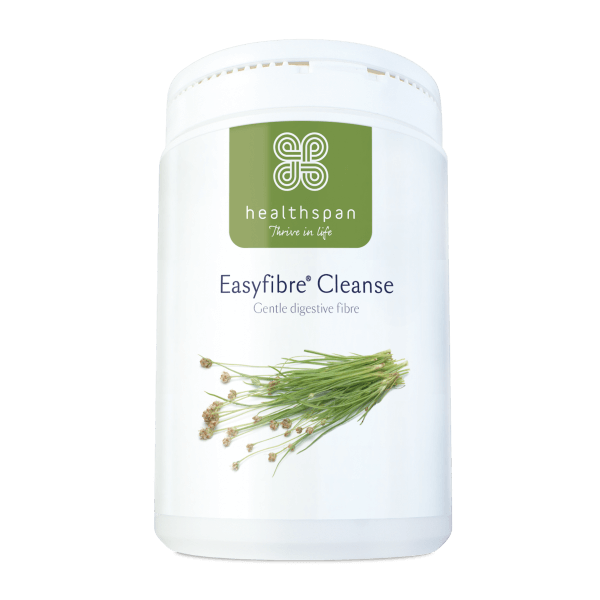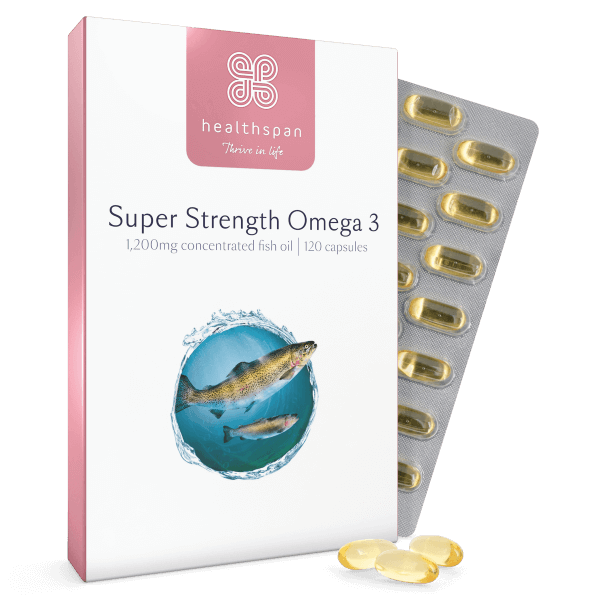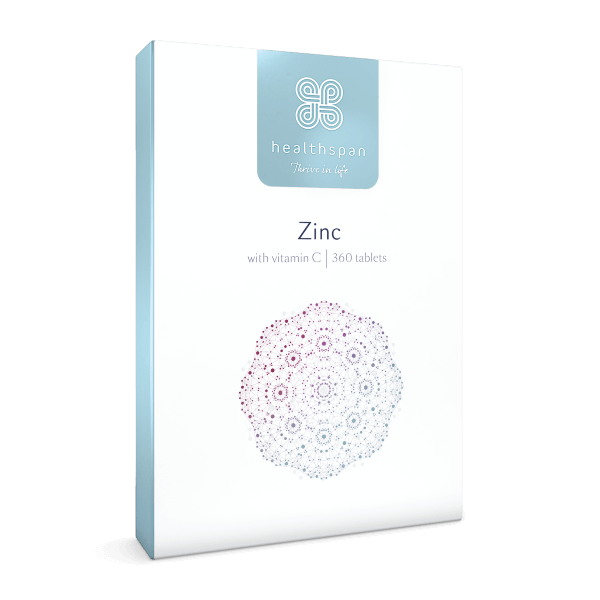There are certain foods, vitamins and minerals that are particularly important to men's health. Here, nutritionist Rob Hobson looks at the essential nutrients for men – and how to get enough of them in your diet.
Fibre
Fibre is a plant-based carbohydrate that is not easily digested in the small intestine, and so ends up reaching the large intestine. Fibre aids digestion and, according to the NHS, has also been shown to reduce the risk of heart disease, stroke and type 2 diabetes.
Why is it important for men?
According to the UK National Diet and Nutrition Survey (NDNS), only 13 per cent of men get the recommended 30g of fibre per day.1
A high-fibre diet has been shown to protect against heart disease by helping to reduce LDL cholesterol, which is a risk factor for the condition.2
Findings from the World Cancer Research Fund (WCRF) have shown strong evidence that a diet low in fibre can increase the risk of developing serious bowel disease (which is a leading cause of premature death in men over 50).3
Fibre adds bulk to the diet and can help people to feel fuller for longer between meals, and it also helps to maintain a healthy gut microbiota (certain fibres in foods such as bananas, artichokes, asparagus, onions and garlic act as prebiotics which help gut bacteria to flourish).
Which foods are rich in this nutrient?
The richest sources of fibre are beans, pulses and lentils – a serving of these foods can offer as much as one third of your recommended daily intake (RDA).
Wholegrains such as oats, brown rice and bran cereals are also a great source of fibre, as are fruits (fresh and dried), vegetables, nuts and seeds. Some foods contain certain fibres that can help to lower cholesterol, including oats (beta glucan) and apples, grapes and berries (pectin).
How can you include more of this nutrient in your diet?
Start by eating more fruits (fresh and dried) and vegetables and leaving the skin on. Add beans, pulses and lentils to dishes such as one-pot meals (stews, soups, curries and casseroles) and salads. These foods can also be used to make high-fibre dips such as hummus.
Switch from white starchy foods to brown bread, pasta, rice and breakfast cereals and keep nuts and seeds to hand, as they can be eaten as a high-fibre snack.

Easyfibre® Cleanse
A natural and simple solution to help increase your fibre intake
- Formulated using the highest quality seed husks from Plantago ovate, otherwise known as blonde psyllium
- Can be sprinkled over your cereal or porridge, or added to a glass of water or juice
Omega-3 fatty acids
These essential fats have to be obtained from the diet, as the body can't make them. Omega-3 fats include EPA and DHA from oily fish, and ALA found in plants. These fats are integral to maintaining heart health and normal cholesterol levels.
Why are they important for men?
Very few adults eat oily fish on a regular basis (the current advice is one serving per week).
There has been a lot of research surrounding the consumption of oily fish and heart disease, which is the leading cause of premature death in men. It has been shown that omega-3 fatty acids may help to improve risk factors for heart disease in several ways, including maintaining normal blood cholesterol concentrations4 and normal cardiac function.
Which foods are rich in this nutrient?
The richest source of omega-3 fatty acids is oily fish, including fresh salmon, trout, herring, pilchards, sardines, sprats and mackerel. Some canned fish is also rich in omega 3, such as salmon, pilchards and sardines.
Plant sources of the omega-3 fat ALA include nuts (especially walnuts), seeds, seed oils (especially chia and flax), tofu, edamame (soya) beans, avocado and whole wheat bread. However, ALA is poorly converted to EPA and DHA in the body, and so plant foods are not the best source of omega 3.
How can you include more of this nutrient in your diet?
Try grilling salmon, trout or mackerel and serving with wholegrains and vegetables, or make smoked salmon and scrambled egg for breakfast or as a light meal. A good fish pie, fish curry or kedgeree also make nice meals.
Pâtés are an excellent way to get more omega 3, and you can make these from smoked mackerel or canned fish such as salmon.
Keep seeds and nuts to hand to sprinkle over foods and – if you don't eat much fish - consider a supplement (vegan supplements are also available).

Super Strength Omega 3 1,200mg
Highly concentrated, refined and sustainably sourced omega-3 fatty acids
- 240mg DHA and 360mg EPA
- Anti-inflammatory; supports brain, eye and heart health
- Benefits of oily fish for 22c a day
Zinc
Zinc contributes to many processes in the body, including cell division, metabolism of fatty acids, immune system function and maintenance of normal vision and cognitive function.
Why is it important for men?
Zinc is important for men's fertility, as it contributes to the maintenance of normal testosterone levels. Low levels of testosterone can result in low libido, fatigue, loss of muscle mass and in some cases erectile dysfunction.
Zinc is also important for maintenance of normal hair. A healthy hairline is a concern for any men and while zinc may not slow down baldness, it will ensure what you have is strong and healthy.
What foods are rich in this nutrient?
Foods rich in zinc include beef, chicken (dark meat), tofu, nuts, seeds, lentils, low-fat yoghurt, oats, mushrooms, seafood, eggs, cheese, wholegrains and pulses.
How can you include more of this nutrient in your diet?
Keep nuts and seeds to hand so you remember to sprinkle them over dishes such as salads, porridge and yoghurt.
Go plant-based a couple of times each week. Many plant-based foods are high in zinc, especially the ones that form the base for dishes, such as lentils, beans, pulses and wholegrains.
Include a couple of servings of seafood in your diet each week, as these foods are a good source of zinc. Although oysters are the richest source, they are not high on everyone's shopping list so try prawns, clams and lobster.
Finally, ditch breakfast cereal in favour of foods such as porridge, yoghurt, eggs and wholegrain toast, which are all loaded with zinc, and consider either a multivitamin and mineral supplement or zinc supplement.

Zinc with Vitamin C
Easily absorbed zinc citrate for immunity, hair, nails, skin and vision
- Zinc citrate for easy absorption
- Supports immunity and multiple other health areas
- Support your health and wellbeing for less than €0.04 a day
Potassium
Potassium is an important mineral that contributes to normal muscle function, as well as the maintenance of normal blood pressure.
Why is it important for men?
High blood pressure (hypertension) is a serious health problem that increases the risk of stroke – a leading cause of premature death in men.
Potassium is vital for healthy blood pressure, but findings from the UK NDNS have shown that average intakes of potassium in men are below the RNI (reference nutrient intake); on average, men only consume 82 per cent of the RNI.1
What foods are rich in this nutrient?
Foods highest in potassium include bananas, spinach, kale, beetroot, salmon, beans, pulses, lentils, avocado, potatoes, melon (all varieties), squash, courgette, low-fat yoghurt, mushrooms, kiwi fruit and tomatoes.
How can you include more of this nutrient in your diet?
Vegetables are the richest source of potassium, and one of the reasons intakes are low is because less than a third of men manage to eat five a day.
Try chopped banana on low-fat yoghurt for breakfast, or roast salmon with steamed green vegetables and boiled new potatoes for dinner.
Go plant-based a few times each week to ensure you are eating more plant-foods rich in potassium, and consider taking a multivitamin and mineral supplement.







